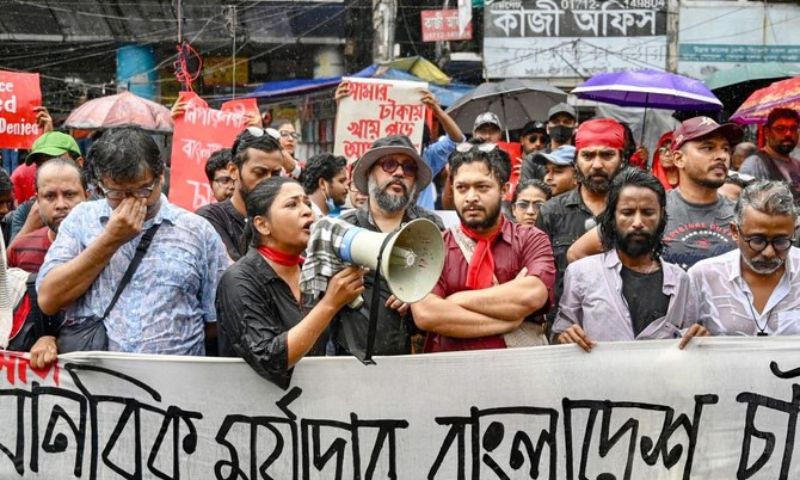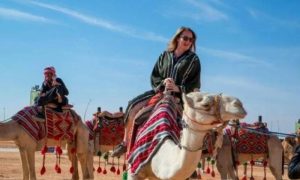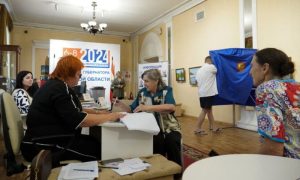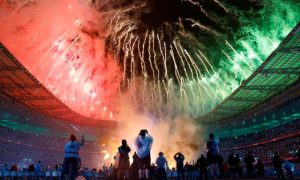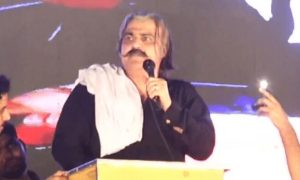DHAKA: Following Friday prayers, demonstrations erupted in Bangladesh, demanding justice for victims of recent nationwide unrest and police crackdown.
The public outcry continued despite the release of protest leaders, which failed to ease the growing anger.
Student-led protests against civil service job quotas led to severe violence last month, resulting in at least 206 deaths, according to AFP’s tally from police and hospital sources.
The unrest marked some of the most intense violence during Prime Minister Sheikh Hasina’s 15-year rule, drawing significant domestic and international criticism.
Even after police released six top leaders of the group that organized the protests, Students Against Discrimination called for renewed demonstrations. “We want justice for the murders of our sisters and brothers,” the group stated.
Thousands of protesters, mainly young men, took to the streets in the capital Dhaka and the port city of Chittagong after midday prayers, braving heavy monsoon rains. Outside Dhaka’s largest mosque, demonstrators chanted, “Why are our brothers in graves and the killers outside?”
The students had previously demanded the release of their detained leaders, three of whom were forcibly removed from a hospital by plainclothes police last week. Although their release suggested an attempt by the government to de-escalate tensions, other demands remain unmet.
These include a public apology from Hasina for the violence, the dismissal of several ministers, and the reopening of schools and universities, which were closed during the unrest. Some protesters are even calling for Hasina’s resignation. “She must go,” said activist Arup Rahee. “There will be no justice for the student murders if she remains in power.”
Amid the protests, internet access to Facebook, WhatsApp, and Telegram has been restricted, with Netblocks reporting renewed blockages. A phone company official confirmed, “We were instructed by the authorities to block Facebook.”
Hasina, 76, has ruled Bangladesh since 2009 and secured her fourth consecutive term in January’s election, which was marred by allegations of a lack of genuine opposition. Her administration faces accusations of using state resources to consolidate power and suppress dissent, including extrajudicial killings of opposition figures.
The unrest began in early July over a quota system that reserved more than half of all government jobs for certain groups. This system, recently scaled back by the Supreme Court, had angered many graduates struggling with high unemployment. Critics argue that the quotas were used to favor loyalists of the ruling Awami League.
The protests, initially peaceful, turned violent after clashes with police and pro-government student groups. The government imposed a nationwide curfew, deployed troops, and shut down the mobile internet for 11 days to restore order.
European Union foreign policy chief Josep Borrell condemned the police response, labeling it as “excessive and lethal” and calling for an independent investigation. Home Minister Asaduzzaman Khan defended the actions of the security forces, claiming they were forced to fire to protect government buildings.
The UN reported that at least 32 children were among the casualties last month. Although Bangladesh sought UN assistance for an internal investigation, it was met with a call for an independent inquiry. “The UN does not support national investigations in the manner proposed,” said a UN official.









